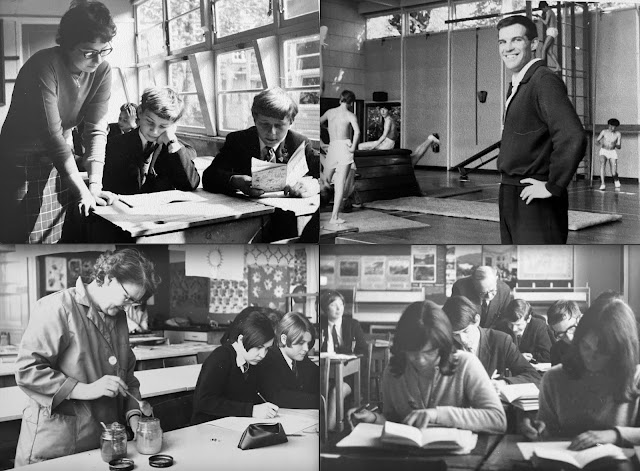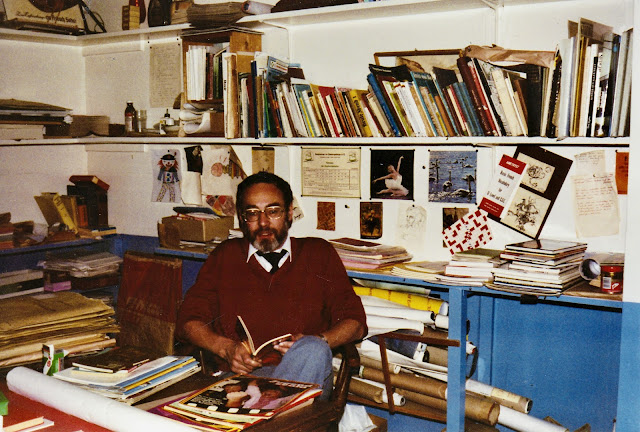1967 and memories of 5L
We've reached the 5th form in Stephen Willoughby's recollections of his time at the Gilberd. Next week we will be taking a small detour to France as Stephen remembers a school holiday that was famous for all the wrong reasons...
This was the year of hormones, O-levels, questionable jokes, artfulness and rebellion. We started to challenge the established order with short skirts, ties worn at jaunty angles (or used as belts), questionable hair styles, daring artwork drawn on bags and exercise books, fags smoked furtively in dark corners of the school site or just beyond, and more.
The fairly innocent “knock knock, who’s there?” type jokes of earlier years were replaced with altogether much steamier versions - Janice Nevard, as I recall, knew the best ones.
Mrs Day’s back room at her sweet shop became the de facto meeting place for smokers at breaktimes, and she obligingly sold single No. 6’s for 3d. She was also able to cough in a particular way whenever a teacher entered the shop, as a signal for us to keep quiet. It was futile, of course – the teachers were canny enough to know what was going on.
Those who looked older than their years would sometimes chance their arm by visiting the Stockwell Arms in the Dutch Quarter at lunchtimes, a pub which was tucked away out of view of the school. This would become a more regular occurrence when we entered the sixth form, when we would also feel emboldened to visit the Marquis of Granby over the road from the school.
By this time we had also honed the skill of inventing excuses for not having completed the homework set, or for explaining absence. The teachers, of course, were always one step ahead of us but it was always worth trying.
One teacher I haven’t mentioned so far in my recollections is Mr Andy Anderson, who was a teacher of English as well as being Deputy Head. Andy famously rode a bicycle with a large wicker basket attached to its front. I think it was around this time that some wags in the sixth form decided to capture Andy’s bike and somehow manage to put it on display outside at the top of the main building; I’m not sure what the fallout was but I don’t think there were any expulsions. I discovered that Andy was an excellent teacher. On one occasion he covered for our regular English teacher, “Killer” Jones, at which he explained with great clarity the rules of punctuation. I can hear his voice and see his hand gestures even now whenever I need to apostrophise a possessive: he did indeed have his students’ interests at heart. Andy was a great advocate of Thomas Hardy, and many years later I bumped into Andy outside Colchester Library and told him that I, too, had become a fan. I think he was pleased, but that was the whole point.
On the subject of Heads, by this time there had been a change of gear at the top with the retirement of Ralph Sprason and the appointment of John Glazier. I think Miss Twyman might had retired around the same time. John Glazier introduced a more relaxed ethos and was perhaps more “hands on”, being seen more often around the school, than Mr Sprason. Both were excellent Heads in my view.
By and large we had the same teachers as in 4L, but looking at my report for 5L I see that we were taught RE by someone whose initials I can’t decipher. It might have been this year, or perhaps a year later, that our RE instructor was well known for having ill-fitting dentures which resulted in him making a strange whistling sound whenever he mentioned a word containing the letter “s”. We would therefore look forward to lessons featuring the books of Ecclesiastes and Thessalonians, around which - being rich in “s”s - we were keen to engage in discussions for the entertainment which would ensue.
It has to be said that The Gilberd was widely regarded as the poor relation to the other selective schools in Colchester, presumably on account of it having neither the words “high” nor “grammar” in its name, and possibly also because of its Technical School legacy. My mother still recounts the tale of mentioning to our local rector that I was considering whether or not to take Latin in my third year. The rector, whose sons went to the Royal Grammar School, apparently snorted: “They don’t do Latin at the Gilberd.” As students, though, I don’t think we were greatly affected by our perceived inferiority; many of my very good friends were at the Grammar School, and I ended up marrying a girl from the County High School for Girls. (One thing I did become aware of through these friendships was that the music provision at both the CRGS and CHSG was vastly superior to what was on offer at The Gilberd.) Typical interfacing venues where schools would mix in town after school were Thorogoods in Head Street and The Golden Egg in Crouch Street where several of us would share a single cup of coffee and make it last an hour.
The main preoccupation of this year, though, was the preparation for the O-level exams which we would take in the summer. I still have vivid memories of being issued light green exam papers in St Peter’s Church Hall while we sat in serried rows under the supervision of a teacher who would get on with some marking while we tackled the questions set as best we could. Most of us were taking 8 or 9 subjects, some in multiple parts, so it was a long and intensive experience.
And so ended the compulsory part of our education, and at this point many left to get jobs while others elected to stay on into the sixth form. For some reason, this was when the labelling changed from Arabic numbering to the Roman system, meaning that I went from 5L into the LVI.





Comments
Post a Comment